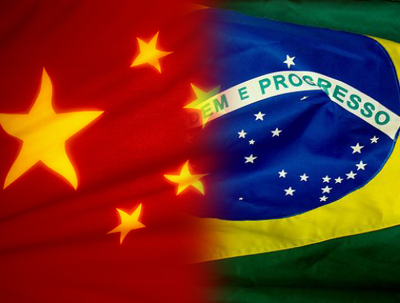One thing to remember is that obtaining a full cultural understanding of any culture is always a work in progress. Each experience within a culture has the potential to teach new lessons or expand on existing knowledge. As I do not have an abundance of travel under my belt, I enjoy reading and listening to the cultural experiences of others in hopes of gaining a better understanding about various cultures. My interest is heightened when it comes to stories pertaining to the global business market and how cultural knowledge plays a significant role. My heightened interest for this topic stems from an understanding of the significance of global relationships and trade in today’s global economy, and what our expanding global economy will demand of its leaders.
Photo retrieved from http://www.smartcitymemphis.com/2013/09/getting-worldly-about-the-global-economy/
In an article for the New York Times, Deb Weidenhamer, chief executive of Auction Systems Auctioneers & Appraisers, described her experiences in doing business in China (2013). In the beginning of the article, she talked of the preparations she took prior to doing business in China, such as books, tutelage, and firsthand knowledge (Weidenhamer, 2013). As her time in China progressed, she found her efforts toward cultural understanding rewarded by successful relationship building with her Chinese clients (Weidenhamer, 2013). Weidenhamer noted about the Chinese culture that, “Every encounter has a ritual to it, and the smallest details matter: the order of introductions, the seating arrangements, the gifts exchanged and even the topics discussed” (2013). Thus, her successes were no easy feat. Moran, Harris, & Moran (2011) highlight the importance of proper etiquette in the Chinese business culture. There are many Chinese customs that do not align at all with Western customs (Moran et al., 2011). For example, the Chinese culture emphasizes relationship building that may include the divulging of what Westerns would consider to be private information (Moran et al., 2011). Weidenhamer discusses this hurdle as she explains being questioned about her age and salary (2013). Despite overcoming many cultural hurdles and making strides with her Chinese clients, Weidenhamer made one mistake not easily mended (2013).
Photo retrieved from http://www.business-in-guangzhou.com/whats-the-most-painful-part-of-doing-business-with-china.html
After successfully hosting a business lunch, Weidenhamer prepared for her return to the United States for a few weeks (2013). On her way out, she was informed that the association’s chairman invited her fruit picking with other members of the association to take place the following day (Weidenhamer, 2013). She respectfully declined, thinking of the invite as a courtesy following her successful lunch, and boarded her plane to make it back to America to attend to other appointments (Weidenhamer, 2013). Upon returning to Shanghai later, she found out that declining the fruit picking offer was very offensive and the damage was not easily repaired (Weidenhamer, 2013). She found out she was perceived as arrogant and self-centered (Weidenhamer, 2013). Her Chinese clients seemed to be reciprocating the invitation they received for her luncheon by inviting her to pick fruit, a gesture which is important in the People’s Republic of China (PRC) (Moran et al., 2011).
After learning of her grave mistake, Weidenhamer asked her Chinese office manager why she did not advice her against declining (2013). Weidenhamer described the response from her office manager in the following statement: “Mortified, she told me she hadn’t even considered doing so: She felt it wasn’t her place to question me” (2013). China’s hierarchical society and “role fulfillment” mentality can easily be used to explain the actions of Weidenhamer’s office manager (Moran et al., 2011). This brings me back to my opening statement about how cultural understanding is an ongoing process, filled with many opportunities for success and much potential for failure. Weidenhamer found out the hard way that, despite much preparation, experience, and success, one mistake can serve as quite the set back (2013). Moran et al. (2011) summarize business in China stating, “It is recommended that the qualities that foreign businesspersons possess going to the PRC are dignity, reserve, patience, persistence, and a sensitivity to and respect for Chinese customs and temperament” (p. 337). I would add that a traveler, whether for business or pleasure, should maintain a high level of respect for any culture he or she is visiting, which means one must dedicate a lot of time and energy to cultural knowledge and understanding.
I encourage reading the full article by accessing the following link: http://boss.blogs.nytimes.com/2013/11/13/how-i-made-my-biggest-mistake-in-china-so-far/
I also encourage reading the comments attached to the article. The debate and insight shared within the commentary is equally intriguing.
References
Moran, R. T., Harris, P. R., & Moran, S. V. (2011). Chapter 12: Doing business with Asians and Australians. Managing cultural differences: Global leadership strategies for cross-cultural business success (8th ed.) (p. 323-390). Oxford, UK: Elsevier Inc.
Weidenhamer, D. (2013, November 13). How I made my biggest mistake in China (so far). The New York Times. Retrieved from http://boss.blogs.nytimes.com/2013/11/13/how-i-made-my-biggest-mistake-in-china-so-far/







